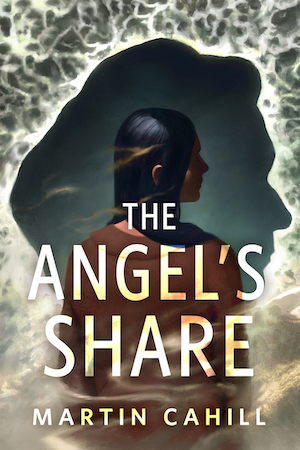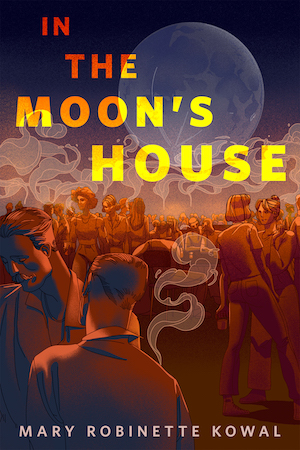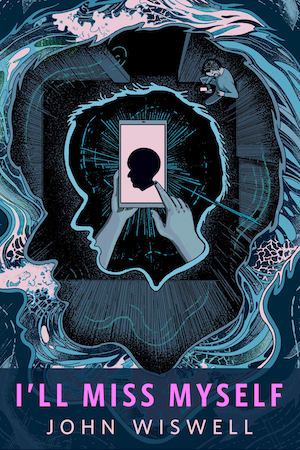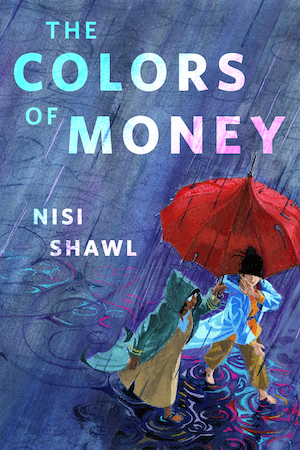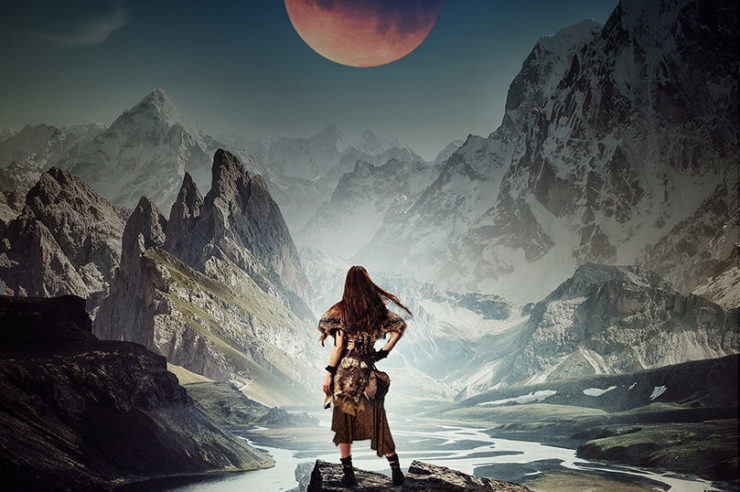Like a lot of young kids growing up reading epic fantasy, R.A. Salvatore was one of my absolute favourite authors. Less traditionally, my path to becoming a Salvatore fan wasn’t through his popular Drizzt books (though I’d read and enjoy those later), but rather through his other brilliant epic fantasy, the DemonWars Saga. Over its seven books—comprised of two main trilogies and a bridge novel—DemonWars tells the harrowing, heartbreaking story of Corona, a world gifted with magical stones, the complex socio-political makings of its church, and the legendary Jilseponie Ault, who climbs her way from humble beginnings to become the most powerful magic user in the world. Mortalis, the fourth book that bridges the two trilogies, remains to this day one of the most affecting and beautiful novels I’ve ever read—it helped show a 17 year old reader that epic fantasy could be at once vast and intensely personal.
It was bittersweet to leave Corona behind with the publication of the final book in the series, 2003’s Immortalis—however, over the years, Salvatore has returned to the world, most recently with Child of a Mad God, a new epic fantasy that focuses on a previously unexplored region. It’s an excellent opportunity for long-time fans to return, and also a good jumping on point for new readers. Included with the paperback edition of Child of a Mad God is a novella originally published by Salvatore in 2014 titled The Education of Brother Thaddius. Unlike Salvatore’s previous returns to Corona—which were either set centuries before the DemonWars series, or in parts of the world only touched-upon by the series’ events—this novella is set in the immediate aftermath of Immortalis’s world-changing climax, and, as such, is a delight for long-time fans.
Salvatore might be known for his intense, brutal action scenes, but from the moment you read its unusual title, you know The Education of Brother Thaddius is going to be a little different than what you might be used to from the author. Like a coin, Salvatore has always had two faces—both the Drizzt and DemonWars books are loaded with action, but its balanced by a philosophical side that, in my opinion, has often set Salvatore apart from his contemporaries. He’s constantly examining the cost of war and violence, the meaning of family, duty, freedom. The Education of Brother Thaddius is no different—it examines the aftermath of war by following several characters from either side of the conflict as they try to find their way in the new world.
As you might intuit from the title, the core of the story is centred around Thaddius, a monk of the Abellican Church who supported Marcalo De’Unnero, a heretic abbot who split the church in two before eventually losing a war that tore Corona asunder. Like anyone on the losing side of a war, Brother Thaddius is filled with resentment and fear, driven by a desire to see the tenets of his old master followed through even as his corpse cools. Brother Thaddius himself, however, is a rare point-of-view character, and we instead see his journey through the eyes of fellow monks, sisters, and even the new Father Abbot, who rules in the seat once held by De’Unnero. Salvatore uses the unique structure to great effect, and allows the reader to experience the story’s complex themes from many different angles.
The result is a story that meanders a lot, putting its attention and energy into its themes and character interactions. Those readers looking for Salvatore’s famous fight scenes will be disappointed until the very end, but for someone like me, who loved Mortalis and The Highwayman, two of Salvatore’s more theme-heavy novels, it’s a perfect blend.
Buy the Book
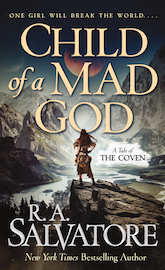

Child of a Mad God
While it’s always fun and interesting to join Salvatore on his thematic explorations—this is one of the best elements of his Drizzt novels, for instance—it’s difficult to recommend The Education of Brother Thaddius to readers who aren’t already intimately familiar with DemonWars. Many of the characters, plot points, and themes piggy-back directly on those introduced in DemonWars, and, I expect, lose a lot of their value without that important context. As a long-time fan of the series, I found so much value in returning to the world and its characters, in seeing how they’d changed, how my relationship with them had evolved over the past 15 years, and also how I’d change in the interim.
If there’s a major knock against the story, it’s that Salvatore makes a risky play with the ending, cutting things off just when the tension is thrumming at its highest pitch—it feels a bit premature, and several story threads are left without concrete resolutions, which might bother some readers. But I am left yearning for more stories in the country of Honce-the-Bear examining the aftermath of the DemonWars Saga.
If you’ve read Child of a Mad God and are looking to delve deeper into Corona’s history, I can’t recommend The Education of Brother Thaddius. Rather, I’d point you in the direction of the original Corona novel, The Demon Awakens, or The Highwayman, an ostensible standalone prequel that features one of Salvatore’s most gripping and personal stories. If you are familiar with DemonWars, and want to fill in the gaps between the end of Jilseponie’s journey and the beginning of Aoleyn’s, The Education of Brother Thaddius offers a rich, if truncated, return to Corona.
The Education of Brother Thaddius can be found in the paperback edition of Child of a Mad God, available now from Tor Books.
Aidan Moher is the Hugo Award-winning founder of A Dribble of Ink, author of “Youngblood,” “The Dinosaur Graveyard,” and “The Penelope Qingdom,” and a regular contributor to Tor.com and the Barnes & Noble SF&F Blog. Aidan lives on Vancouver Island with his wife and kids, but you can most easily find him on Twitter @adribbleofink and Patreon.


